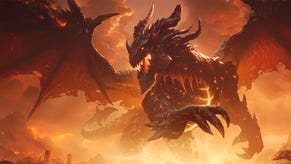Are Facebook games getting better?
Move over, FarmVille.
The biggest gaming platform in the world has 500 million users and zero respect. Traditional gamers and developers bemoan the lack of complexity of Facebook games and the shady business practices of those who create them. It's not uncommon to hear the word "evil" tossed around during discussions of social gaming giant Zynga. But that's changing.
Once the domain of farming simulators and text-based gangster games, Facebook is now home to in-depth role playing games, full-blown MMOs and some of the biggest names in game development. Names like Ubisoft, Electronic Arts and Square Enix.
Sid Meier is crafting a new version of Civilization specifically for the platform and indie developers are creating unique experiences you can't find anywhere else. There's more to Facebook games than just FarmVille.
From the developer's perspective, there's a lot to like about the world's largest social network. For starters there's the massive built-in audience and the potential for monetisation that hundreds of millions of users provide. And money makes people take notice.
Unfortunately, the pursuit of profit doesn't always result in great games. That's part of the reason that the current generation of social games is often treated with such disdain - FarmVille isn't seen as a game, but a way to make money.
"The traditional way to develop these games seems to be to cobble together a strong viral-monetising machine. Then, if time permits, maybe add something like a game on top of that," says David Whatley. He's the president and CEO of Simutronics Corp, the company behind Facebook RPG Fantasy University.

"With FU we put gameplay first, and we knew [we] would have to figure out how to fit the viral and monetising bits in there over time. A product like FU is very heavy on high-quality content and rich game mechanics, both of which we are rapidly expanding as we go."
While Simutronics may not be a household name, the developer has been around for more than two decades, crafting MMORPGs like the GemStone series and DragonRealms. But developing MMORPGs is expensive and it's not easy to compete against the likes of World of Warcraft. So Facebook offered a new opportunity.
"Facebook represented a new type of gaming platform that had a more reasonable development and operational cost structure," Whatley says. "You can launch a online game using cloud-based infrastructure that scales as you grow."
Fantasy University is a deep, menu-based RPG that's rife with cultural references. Think of it as Harry Potter if Harry, Ron, and Hermione made fun of Spongebob and Star Wars all day. It's funny and engaging and it's unlike anything on the platform. It's a hardcore game for a hardcore audience. But it seems that audience isn't taking notice.
"FU is growing steadily, though hardly at a rate commensurate with our wildest dreams," Whatley says. "We found out that, again much to our surprise, the crowd that seems most likely to get a kick out of FU's snarky take on modern culture is exactly the crowd that loathes the idea of Facebook games."
So, in spite of the huge audience of Facebook users, Simutronics is planning to make the game available to even more players through OpenID. But FU represents quite the quandary: gamers complain that there's no good games on Facebook, and then when one shows up, they don't play it.
The platform itself is what's turning off many players. It's not just the games.Maybe gamers just don't want to play games on Facebook?
"I think part of it is the wide reach of the platform itself," says Scott Jon Siegel, a designer at Disney-owned social game studio Playdom. "Facebook and social networking have become so ubiquitous that there's almost an anti-establishment backlash against their popularity.






.png?width=291&height=164&fit=crop&quality=80&format=jpg&auto=webp)
